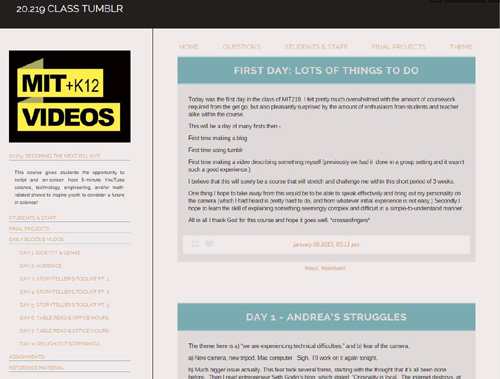The students in the course were asked to share their thoughts throughout the course in daily blogs and vlogs posted on the course Tumblr. Those reflections are collected here, courtesy of the instructors and the students.
- Elizabeth Choe’s Reflections
- Ceri Riley’s Reflections
- Kenneth Cheah’s Reflections
- Joshua Cheong’s Reflections
- Andrea Desrosiers’ Reflections
- Nathan Hernandez’s Reflections
- Yulia Klochan’s Reflections
- David Yam’s Reflections











